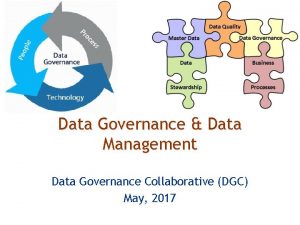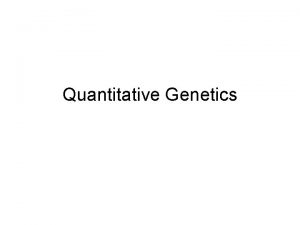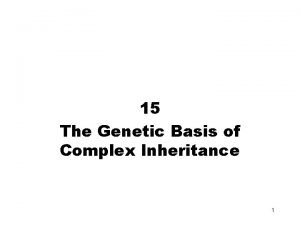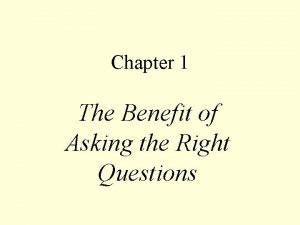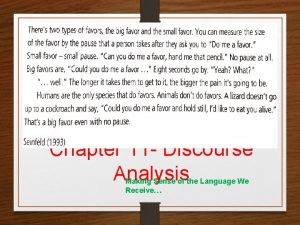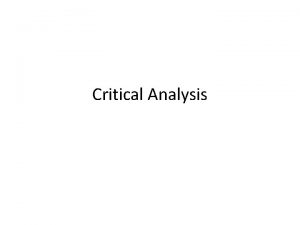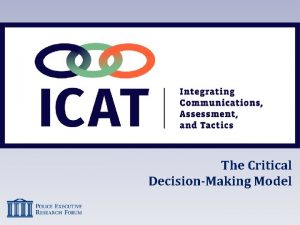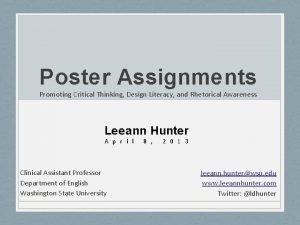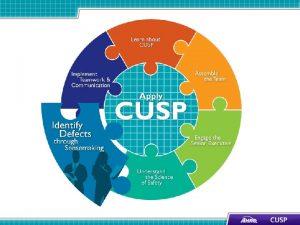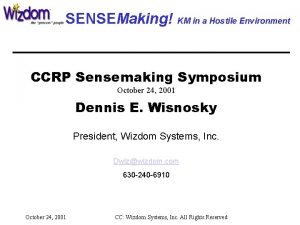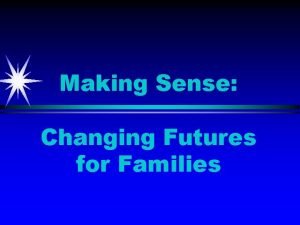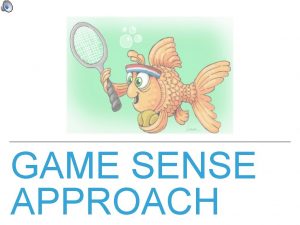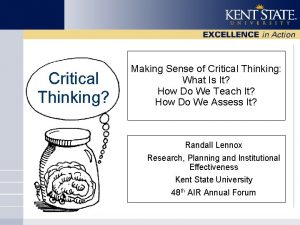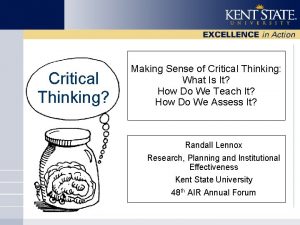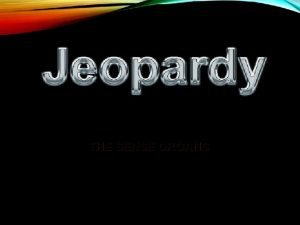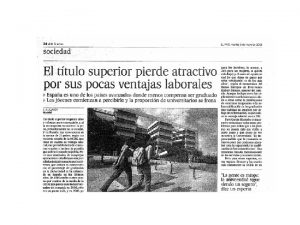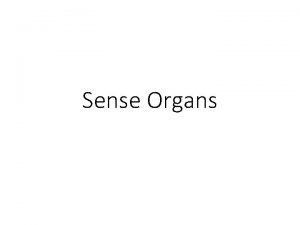Making sense of sensemaking the critical sensemaking approach










- Slides: 10

Making sense of sensemaking: the critical sensemaking approach by Jean Helms Mills, Amy Thurlow, Albert J. Mills ADRIANNA NIZINSKA

) Weick’s focus on individual identity in the context of social interactions contributes in a great deal in reinserting agency in organizational studies BUT Weick’s approach is limited by an under focus on issues of power, knowledge, structure, past relationships The value of critical sensemaking lies in the attempt to fuse (post)structural and socio-psychological factors to help explain the role of agency in organizing

) Identity Sensemaking describes a process of identity construction whereby individuals project their identities into an environment and see it reflected back. Through this process, they come to understand what is meaningful in their own identities Critical sensemaking shifts focus to how organizational power and dominant assumptions privilege some identities over others and create them as meaningful for individuals

) Power Sensemaking do not fully explain why some experiences, language, and events become meaningful for individuals while others do not. Individuals do not make sense of their experiences in isolation of their broader environments. Individuals with more power in organizations may exert more power on the sensemaking of organizational members. Critical sensemaking analyze the power relationships reflected in these inequalities within organizations and the consequences of those power effects for individuals.

) Structure As sensemaking is not a linear process, analysis does not happen in a particular sequence As a result, individuals within organizations may not make sense of the same event in the same way. There is no one “right” meaning attached to a given experience

) Context Critical sensemaking positions the formative context as a link between dominant social values and individual action. No formative context is necessary or fixed, but some are privileged within society above others. Formative contexts, and the related organizational rules are both productive of and produced through discourse

) Context Critical sensemaking argues that sensemaking needs to be explored through, and in relationship to, the contextual factors of structure and discourse in which individual sensemaking occurs Critical sensmaking introduce the concept of meta rules to sensemaking practices (i. e. privatization, competition, globalization) Meta rules are broad in scope and represent points of intersection between numbers of formative contexts

) Critical sensemaking provides a framework for understanding how individuals make sense of their environments at a local level while acknowledging power relations in the broader societal context. acknowledge a complex combination of variables (social psychological properties, discourse, organizational rules), and the formative context in which organizations exist offers an analysis of how these forces combine to allow individuals to make sense of their environments and take action on a day-to-day basis. is useful in analyzing the relationship between individual actions and broader societal issues of power and privilege.

) References and further reading suggestion: Jean Helms Mills, Amy Thurlow, Albert J. Mills, (2010) "Making sense of sensemaking: the critical sensemaking approach", Qualitative Research in Organizations and Management: An International Journal, Vol. 5 Issue: 2, pp. 182 -195, https: //doi. org/10. 1108/17465641011068857

) Questions or comments ? Email: adrianna. nizinska@gu. se
 Critical semi critical and non critical instruments
Critical semi critical and non critical instruments Critical semi critical and non critical instruments
Critical semi critical and non critical instruments Weick model
Weick model Master data management mdm vs. sensemaking
Master data management mdm vs. sensemaking Narrow sense heritability vs broad sense heritability
Narrow sense heritability vs broad sense heritability Narrow sense heritability vs broad sense heritability
Narrow sense heritability vs broad sense heritability Weak sense critical thinking
Weak sense critical thinking Making sense of discourse
Making sense of discourse Critical reading meaning
Critical reading meaning Critical decision making
Critical decision making Critical thinking poster making
Critical thinking poster making



